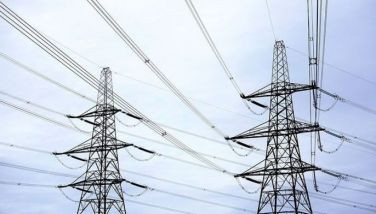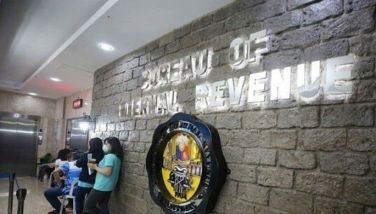Finding our place in the world’s e-vehicle shift

Filipino environment advocates who follow news on the country’s initiatives responding to calls for energy sustainability would likely not have missed the recent announcement of the Ayala Group’s Integrated Micro-Electronics, Inc. (ICI) regarding the manufacture of Zero battery-powered motorcycles for European and Asian markets.
It’s not a majorly huge project, at $65 million, and neither is its business partner US-based Zero Motorcycles, Inc. among the biggest in the world. What catches attention is that Zero is an all-electric motorbike manufacturer that has survived the start-up stage during the years when its products were on a “developmental” stage at a time when the market was still very much in its infancy days.
Of course, the Zero-IMI partnership should also be seen for its public relations value, since the inking of a memorandum of understanding for the manufacturing collaboration between the two companies was witnessed by no less than the Philippine President just a few hours before his meeting with US President Joe Biden in Washington, DC.
Notwithstanding the fanfare, Zero’s intention to let IMI fully assemble its motorcycles at the IMI’s Laguna Technopark facility, as well as do modular assemblies of batteries and electronics, can already be considered a feat by a Filipino-owned company.
IMI, which was founded in 1980, has since expanded its footprint in the electronic manufacturing services (EMS) sector to become a recognized and trusted partner of several reputable global companies. It now has 20 manufacturing sites in 10 countries.
As the eighth largest automotive EMS player in the world, IMI has been pushing harder into the delivery of technologies and design for the electric vehicle ecosystem. It also holds extensive experience in motorcycle assembly through its partnership with Austrian brand KTM since 2016.
Fledgling market
For environmental activist, IMI’s growing focus on e-vehicles is a reassuring step that gives hope for a still fledgling market. While Filipino motoring consumers have expressed their preference to buy vehicles that do not use fossil fuels, current costs and performance of e-cars or e-motorcycles have actually prevented them from committing to a purchase.
Such reality is somehow overshadowed by enthusiasm coming from reports of research and consulting firm McKinsey & Company that have pointed to Southeast Asia (SEA) as a new manufacturing hub for renewable energy technologies, and could bring in as much as $200 billion in revenues by the first half of the century.
Aside from photovoltaic or solar panels manufacturing, McKinsey mentioned the opportunities available in building two-wheeler e-vehicles and batteries since SEA already accounts for six to 10 percent of the world’s electric two-wheeler production.
Vietnam and Indonesia are expected to phase out fossil fuel-powered vehicles in favor of e-vehicles by 2040, and already, both countries are knee-deep in setting up local manufacturing facilities to take advantage of an estimated 20 to 30 percent increase in new unit sales within the period.
As such, they are also in the process of introducing a slew of new incentives, from subsidies for buyers to tax breaks for vehicle manufacturers. So far, despite announced intentions to commit to net-zero emission, only Thailand has actually approved tax cuts and subsidies for e-vehicles.
Indonesia and Malaysia are both fossil fuel-producing countries, and the irony of shutting down their oil and gas wells while shelling out state resources to promote e-vehicle use is not lost on the population, much more on its legislators.
The situation in the Philippines is different, though, since our government does not have the luxury to allot incentives and tax breaks for e-vehicle manufacturing, more so subsidies to make retail pricing of e-vehicles competitive with fossil fuel-powered vehicles using internal combustion engines.
Furthermore, for the Philippines and Indonesia with thousands of islands, setting up charging infrastructure would be a challenge and a big expense, unless its governments mandate oil companies to actually have these facilities available in their service stations.
Nickel for batteries
The brighter side for the Philippines in this shift towards e-vehicles, however, is in the manufacture of batteries that provide the juice to run e-cars and e-bikes, and to store electric power generated from solar panels. Currently, the Philippine and Indonesia make up 25 percent of the world’s nickel supply for batteries.
Thus, it would make better sense for the Philippines to concentrate on attracting investments in state-of-the-art mining and production of nickel, even as it keeps an eye on policies of other nickel-rich countries that are also looking forward to a lucrative era when vehicles will all be powered by electricity.
Indonesia, during the last three years, has reportedly been able to sign more than a dozen deals with a combined value of $15 billion for battery and e-vehicle production on the strength of its huge two- and three-wheeled vehicle market and nickel reserves.
The Philippines, with its growing motorcycle-riding population plus rich nickel mines, should not be far off, which means that the Department of Trade and Industry must start expending a bigger effort to attract investments in this area.
Europe and the US are already moving forward with its intentions to ban the use of internal combustion engines that run of fossil fuels for vehicles within the next decade. Thus, how best to capitalize on the value of our nickel reserves deserves a more serious study.
Not only will battery demand increase for e-vehicles, but also for the solar power sector where technology advances are pushing for a more efficient collection and storage of sunlight energy. Currently, SEA’s solar photovoltaic cells and modules production now accounts for 10 percent of total world production.
Facebook and Twitter
We are actively using two social networking websites to reach out more often and even interact with and engage our readers, friends and colleagues in the various areas of interest that I tackle in my column. Please like us on www.facebook.com/ReyGamboa and follow us on www.twitter.com/ReyGamboa.
Should you wish to share any insights, write me at Link Edge, 25th Floor, 139 Corporate Center, Valero Street, Salcedo Village, 1227 Makati City. Or e-mail me at [email protected]. For a compilation of previous articles, visit www.BizlinksPhilippines.net.
- Latest
- Trending
































